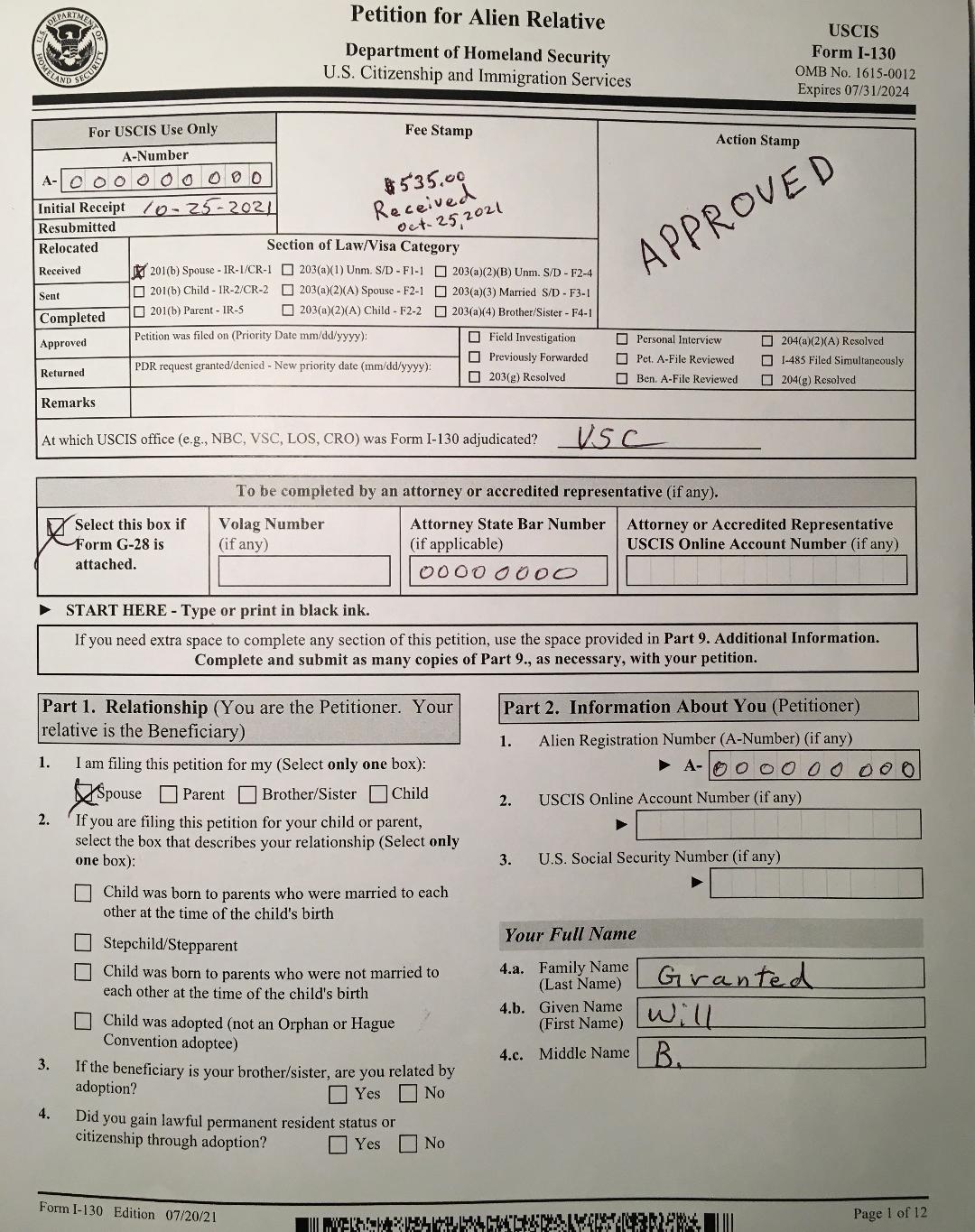blogpage
Dream Act Reflections
by William K. Zimmer
Much attention is being paid to proposed legislation that addresses certain aliens whose parents brought them to the United States or otherwise arrived in the United States at a young and tender age, and who do not have meaningful contact with their native countries. If these aliens do not qualify for relief from removal, the current law dictates removal to their respective native countries. It seems that proponents of the "Dream Act" have accurately pointed out equities that make this class of aliens worthy of compassion.
Federal Immigration Jurisdiction and the Role of Immigration Judge
by William K. Zimmer
In modern times, the role of the Immigration Judge presiding over immigration court proceedings remains essentially unchanged from the role of the Special Inquiry Officer described in section 242(b) of the former Immigration and Nationality Act of 1952.
Congress created Boards of Special Inquiry as investigative bodies in 1903. Then in 1952, Congress substituted Special Inquiry Officers as investigative immigration officers to replace Boards of Special Inquiry. Congress changed the title of "Special Inquiry Officer" to "Immigration Judge" in 1996.
Thus, the history of the role played by Immigration Judges delineates the function of an investigative officer in the context of the inspection process, who routinely works in concert with another immigration officer (the primary inspector) to present evidence, examine and cross-examine witnesses, etc..
The result of this dual investigative and now more judicial role is a tension line that must be walked like a tight rope by Immigration Judges in the ordinary course of conducting immigration court proceedings.
Reissue of Jaco v. Garland
by William K. Zimmer
Just when some might have wanted to forget, on January 26, 2022, the Fifth Circuit Court of Appeal reissued its October 27, 2022 decision which declared unequivocally that Gonzales-Veliz v. Barr, 938 F.3d 219 (5th Cir. 2019) governs the standards for defining a cognizable “particular social group” within the meaning of section 101(a)(42)(A) of the Immigration and Nationality Act, as amended. In spite of Attorney General Merrick B. Garland’s June 16, 2021 order that “pending forthcoming rulemaking, immigration judges and the Board should follow pre-A-B- I precedent, including Matter of A-R-C-G-, 26 I&N Dec. 388 (BIA 2014)," Gonzales-Veliz v. Barr which embraces the rationale of A-B- I is the law in the fifth circuit. Gleidy Yessenia Jaco; Cristofer Alejandro Portillo Jaco v. Garland (5th Cir. October 27, 2021) No. 20-60081 (filed January 26, 2022).
Adjustment to LPR Status After Illegal Entry is an “Admission”
by William K. Zimmer
On January 17, 2022 the Fifth Circuit Court of Appeal held that:
- the doctrine of res judicata (i.e. legalese meaning things previously adjudicated) does not bar a subsequent removal proceeding based on a conviction that had supported a prior terminated removal proceeding, so long as a different or distinct statutory provision forms the basis of the subsequent removal proceeding;
- deadly conduct in violation of Texas Penal Code section 22.05(a) is categorically a crime involving moral turpitude ("CIMT"); and,
- for the purpose of identifying the time of admission when applying section 237(a)(2)(A)(ii) of the Act (i.e. a removal ground for aliens who have been convicted for multiple CIMTs subsequent to admission), adjustment to lawful permanent resident status after entering the United States illegally is an “admission” to the United States.
Santiago Alejandro Diaz Esparza v. Garland (5th Cir. 2022) No. 19-60699
Preclusion of Issue Consideration by a Subsequent Immigration Judge
by William K. Zimmer
On January 4, 2022, the Fifth Circuit Court of Appeal, determined that an Immigration Judge is not precluded from reconsidering whether a criminal offense is a “particularly serious crime” subsequent to a determination by another Immigration Judge that it was not if the facts or the legal standard or both used to classify the offense as a particularly serious crime are not the same in both proceedings. Renferi Aviles-Tavera v. Merrick Garland, (5th Cir. January 4, 2022) No. 20-60587.
Re-visitation of Mirian Margarita Parada-Orellana v. Merrick Garland
by William K. Zimmer
The Fifth Circuit Court of Appeal has revised its decision styled Mirian Margarita Parada-Orellana v. Merrick Garland (5th Cir. August 6, 2021) No. 19-60645, by broadening its jurisdiction under section 242(a)(2)(B)(i) of the Immigration and Nationality Act, as amended (“the Act”) to review administrative denials of motions to reopen based on the moving party’s failure to establish prima facie eligibility for cancellation of removal under section 240A(b) of the Act.
Judicial Review Under Review
by William K. Zimmer
The United States Supreme Court granted certiorari in a matter styled as Pankajkumar S. Patel, et al. v. Merrick B. Garland, No. 20-979.
This is a case that deserves tracking in 2022 because the outcome will define the outer limits of jurisdiction relating to appellate court review of administrative decisions made by immigration authorities that impact common relief applications such as adjustment of status under section 245 of the Immigration and Nationality Act, as amended (“the Act”), cancellation of removal under section 240A of the Act, voluntary departure under section 240B of the Act, and waivers under sections 212(h) and 212(i) of the Act.
Viability of a Motion to Reopen after Reinstatement of an in Absentia Removal Order
by William K. Zimmer
Although Section 241(a)(5) of the Immigration and Nationality Act, as amended, expressly prohibits reopening or review of a reinstated removal order when an alien is removed and subsequently reenters the United States illegally, a motion to reopen and rescind an in absentia removal order based on lack of notice due to a defective notice to appear might be a pathway to relief from removal.
Judicial Review of Bias
by William K. Zimmer
An Immigration Judge’s denial rate alone is insufficient to show bias. In Daljinder Singh v. Garland (December 17, 2021) No. 19-60937, the Immigration Judge’s denial rate of asylum claims (203 out of 204 claims) was 99.5%.
Harmless Error
by William K. Zimmer
Under a limited exception for immigration cases, even multiple errors can be harmless in favor of the government. Perhaps, this reality reveals another connotation of the phrase, “comedy of errors.”
Forfeiture of Right to Notice
by William K. Zimmer
Failure of a respondent in removal proceedings to provide with a written record an address at which the respondent may be contacted respecting removal proceedings in immigration court will result in forfeiture of the right to notice ordinarily required under paragraphs (1) and (2) of section 239(a) of the Immigration and Nationality Act, as amended, and will be ordered removed from the United States in the respondent’s absence upon failure to appear at the scheduled removal hearing.
Changing Times
by William K. Zimmer
It might surprise some people who dream about open borders to know that the United States once had them.
United States Supreme Court Decision in Pereira v. Sessions, 138 S. Ct. 2105 (2018) does not apply to an OSC
by William K. Zimmer
The notice requirement that a Notice to Appear (“NTA”) must contain the time and place of the initial immigration court hearing to serve as sufficient notice, regardless of proper subsequent notice, established by the United States Supreme Court decision in Pereira v. Sessions, 138 S. Ct. 2105 (2018) and Niz-Chavez v. Garland, 141 S. Ct. 1474 (2021), does not apply to an Order to Show Cause (“OSC”) governed by former section 242B of the Immigration and Nationality Act of 1952, as amended.
Adverse Credibility Finding Results in Blanket Rejection of All Testimony
by William K. Zimmer
On November 8, 2021, the Fifth Circuit Court of Appeal determined that an adverse credibility finding operates as a blanket rejection of every piece of testimony the applicant had offered and, therefore, precludes an asylum applicant from establishing a subjective fear of persecution as described in C.F.R. § 1208.13(b)(2)(i). See Cabrera v. Sessions, 890 F.3d 153, at 159–60 (5th Cir. 2018). Jeevithan Arulnanthy v. Garland (5th Cir. November 8, 2021) No. 19-60760.
Deficient NTA Does Not Cut Off Physical Presence Required for Voluntary Departure
by William K. Zimmer
A Notice to Appear (“NTA”) that does not specify the time and place of a respondent’s initial removal hearing does not end the accrual of physical presence for purpose of eligibility for voluntary departure at the conclusion of removal proceedings under section 240B(b) of the Act, even if the respondent is later served with a notice of hearing that specified the time and place of the initial removal hearing.
Much Ado About Nothing?
by William K. Zimmer
Attorney General Merrick B. Garland, on June 16, 2021, vacated previous attorney general decisions in Matter of A-B-, 27 I&N Dec. 316 (A.G. 2018) (now known as “A-B- I”) and Matter of A-B-, 28 I&N Dec. 199 (A.G. 2021) (now known as “A-B- II”) and the attorney general decision in Matter of L-E-A-, 27 I&N Dec. 581 (A.G. 2019) (now known as “L-E-A- II”). See Matter of A-B-, 28 I&N Dec. 307 (A.G. 2021) and Matter of L-E-A- 28 I&N Dec. 304 (A.G. 2021).
At least in the Fifth Circuit Court of Appeal, this flurry of vacated decisions seems to be much ado about nothing.
An Approved Visa Petition Does Not Guarantee Success For Adjustment Applicants
by William K. Zimmer
Generally speaking, an applicant for adjustment of status to lawful permanent resident based on marriage to a United States citizen must successfully complete a two-step process:
- Obtain an approved visa petition, in part, by establishing a bona fide marriage to the satisfaction of the United States Citizenship and Immigration Services (“USCIS”) pursuant to section 204(a)(1) of the Immigration and Nationality Act, as amended (“the Act”).
- Obtain approval of an adjustment of status application by establishing admission or parole, eligibility to receive a visa, admissibility as an immigrant and the immediate availability of an immigrant visa, pursuant to section 245(a) of the Act.
OCAHO
by William K. Zimmer
On September 1, 2021, OCAHO published a precedent decision relating to document fraud described in section 274C of the Immigration and Nationality Act, as amended. United States v. Zuniga Torentino, 15 OCAHO no. 1397 (2021).
OCAHO??
Rejection of the “Inherently Unbelievable” Standard of Review of Motions to Reopen
by William K. Zimmer
The Fifth Circuit Court of Appeal has joined the Fourth Circuit Court of Appeal by rejecting the “inherently unbelievable” standard employed by the First, Third, Sixth, Seventh, Ninth, and D.C. Circuit Courts of Appeal with regard to the review of a motion to reopen to determine the existence of prima facie eligibility (i.e. legalese meaning superficial showing for the relief sought in a reopened proceeding.
Defective NTA is Insufficient Written Notice for the Purpose of Rescinding In Absentia Orders
by William K. Zimmer
Based on Niz-Chavez v. Garland, 141 S. Ct. 1474 (2021), the Fifth Circuit Court of Appeal has determined that, under section 240(b)(5)(C)(ii) of the Immigration and Nationality Act (“the Act”), an in absentia removal order may be rescinded upon a motion to reopen filed at any time if the subject of such order demonstrates receipt of a defective NTA that does not contain the time and place of the initial hearing in accordance with section 239(a)(1)(G)(i) of the Act.

.jpg)








%20No%20Notice.jpg)
%20frontier.jpg)
%20Notice.jpg)
%20Inconsistency.jpg)

%20Duck.jpg)


%20Inherently%20Unbelievable.jpg)
%20Flooded%20Field.jpg)

